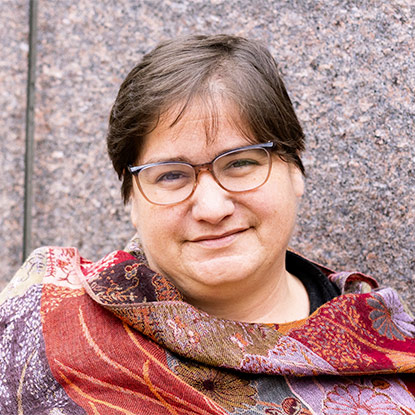Creating a Classroom Climate that Supports Student Engagement in Active Learning

- This event has passed.
Creating a Classroom Climate that Supports Student Engagement in Active Learning
April 24, 2024 @ 2:00 pm – 3:00 pm EDT

Dr. Sarah Eddy, University of Minnesota
Active learning classrooms ask students to engage with coursework differently than traditional classrooms. Not only do they ask students to invest more effort into directly engaging with the content, they often require students to work collaboratively with their peers while learning. The risk “getting it wrong” in front of their peers can prevent some students from fully engaging in active learning classrooms. Instructors can generate student buy-in and foster students’ willingness to take risks through classroom climate. Classroom climate can be characterized by the values, norms, and relationships present in a course. In this talk, we will explore the ways in which instructors can foster student engagement in active learning by emphasizing the relevance of content, setting norms that encourage mastery goals and peer cooperation, and developing high-quality instructor-student relationships.

About the Speaker
Dr. Sarah Eddy is Associate Professor of Biology Teaching and Learning in the College of Biological Sciences at the University of Minnesota-Twin Cities. They received a B.S. in Biological Sciences from Purdue University and a Ph.D. in Zoology from Oregon State University. Sarah completed a postdoctoral scholarship in biology education at the University of Washington. Trained as a behavioral ecologist, Sarah has shifted from studying behavior in a field setting to behavior in college classrooms. Their lab engages in rigorous research to generate data and resources that support science instructors in creating content and course climates that promote student belonging, motivation, and a sense that their unique backgrounds and experiences are a strength within science. In addition to scholarly publications, Sarah’s work has been featured in the New York Times, The Atlantic, Science, and Insight into Diversity.

